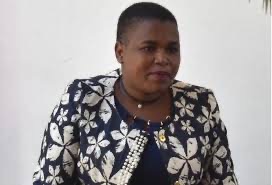Political analyst Dr. Abigale Mupambi has delivered a scathing assessment of the October election turmoil in Tanzania, arguing that both the ruling party and the opposition must shoulder responsibility for the deadly unrest that followed the disputed polls.
Dr. Mupambi stressed that “an election is not an incident; it is a process,” warning that the tragic violence—now being debated “on top of dead bodies”—was the predictable outcome of political irresponsibility throughout the electoral cycle.
Opposition Missteps: A Question of Strategy and Accountability
She began by scrutinising the opposition’s conduct, describing what she called a “technical shortfall.” At the centre of this critique was the opposition leader’s decision not to sign the Code of Conduct, effectively rejecting the rules governing the election.
Although she recognised the legitimacy of the opposition’s long-standing demand—“no reform, no election”—Dr. Mupambi questioned the tactical wisdom behind the approach. She contrasted it with Kenya, where opposition leaders sign the code, contest outcomes, and then challenge them through institutional mechanisms.
“That alone would quench and detain any faith attention that probably would come,” she noted.
She also recalled remarks made by the opposition leader in April, which were interpreted as threats to disrupt the electoral process and resulted in treason charges. To her, these declarations were not just reckless but amounted to a “threat to the sovereign processes of the nation.”
Missed Parliamentary Route for Reforms
Dr. Mupambi argued that a more mature and responsible political strategy would have involved pushing for electoral reforms through parliament, using existing democratic institutions instead of rallying the streets.
Had MPs prioritised this route, she believes the desired reforms could have been secured, reducing tension and eliminating the need to mobilise civilians into confrontation.
Instead, she lamented, innocent citizens—many of them young people—were used as pawns, resulting in burnt villages, destroyed property, and devastating loss of life. Ordinary people, she said, were caught “between the jaws of these politicians.”
Government’s Heavy Hand — and the Shadow of External Influence
While insisting that responsibility is not one-sided, Dr. Mupambi acknowledged that questions must also be asked about the government’s “heavy hands” in dealing with civilians and the youth.
She further noted President Samia Suluhu Hassan’s claims of an “external hand”—foreign actors and NGOs allegedly inciting unrest. These allegations, she argued, deserve scrutiny.
But her strongest criticism remained directed at domestic political actors whose poor decisions and inflammatory actions paved the way for tragedy.
A Call for Responsible Leadership
Dr. Mupambi’s message was unequivocal: Africa’s democracy cannot survive without leaders committed to responsibility, institutional engagement, and long-term thinking.
Without that, she warned, nations will continue to mourn “on top of dead bodies” after every election cycle

